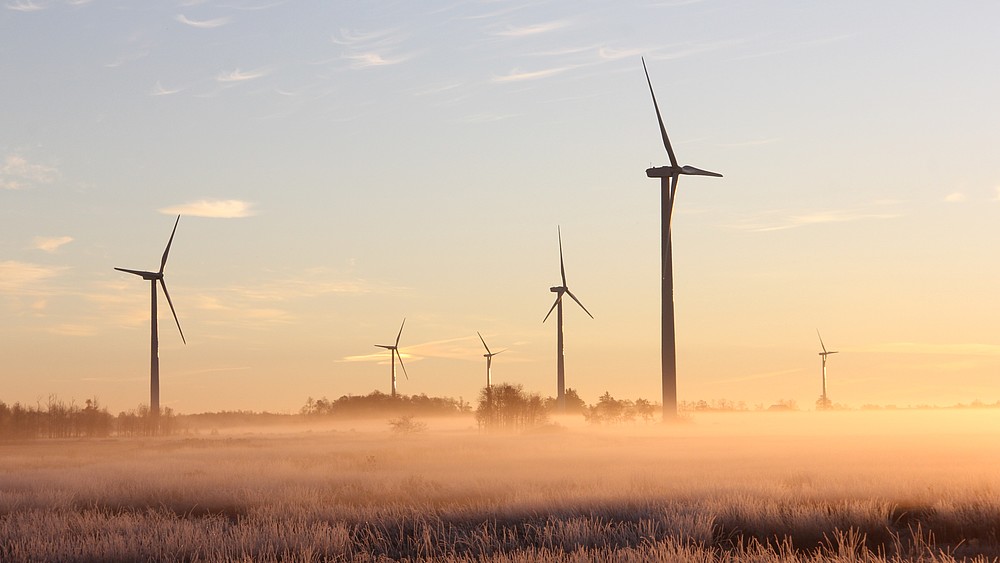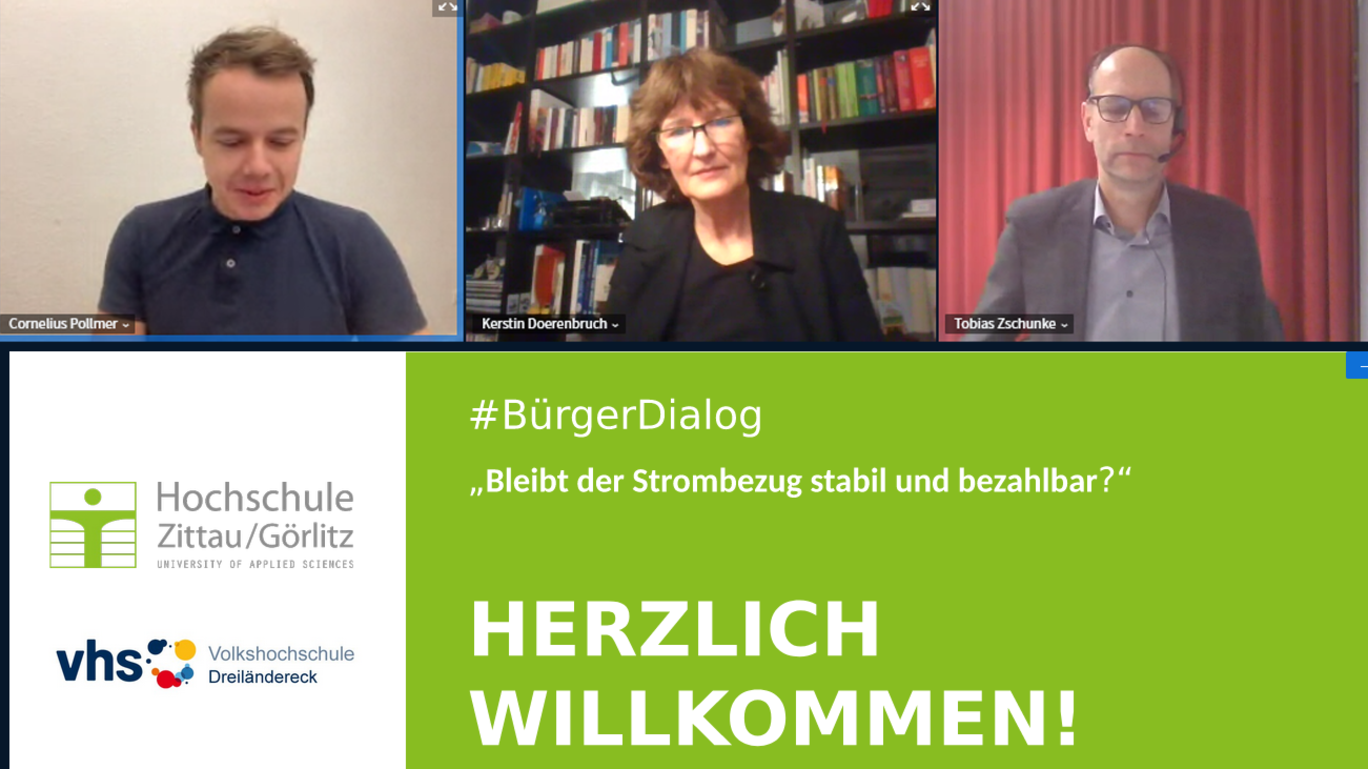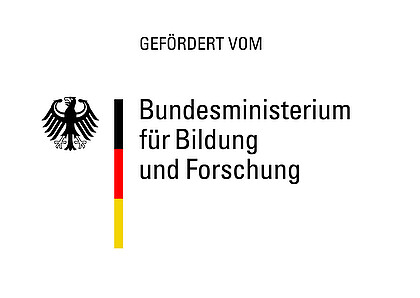When power plant engineers, Greenpeace and citizens discuss at the "Citizens' Dialogue".

Great interest! Over 70 guests chose to discuss the highly topical subject of "Electricity supply - stable and affordable in the future?" at the "Science Citizens' Dialogue: Kreuz- und Quergedacht" online on January 19, 2022.
Right at the beginning, moderator Cornelius Pollmer asked for a picture of the mood among our guests on the subject of the coal phase-out: 40 percent of participants voted for a phase-out by "2038", 35 percent were in favor of "after 2038" and 14 percent by "2030". Nine percent said "not at all". After this - one might say "typically Upper Lusatian rather conservative" - stocktaking, it was time to get down to business.
The first peg was quickly planted: Kerstin Doerenbruch, honorary spokesperson for Greenpeace Berlin, joined the 14 percent from the survey and argued in her opening statement for a German phase-out of coal by 2030. Professor Tobias Zschunke from the HSZG did not want to commit himself and called for a more global view of things. However, he confirmed the view that the transition to a low-CO2 energy economy offers great opportunities for Lusatia.

During the hour and a half of intensive discussion, Ms. Doerenbruch argued that it would be better to invest 30 billion in measures to combat climate change today than to sink 30 billion into consequential damage from severe weather events (see flooding in the Ahr valley). We must not miss tipping points in ecosystems, such as the thawing of permafrost soils, because then the costs of adaptation would be even more expensive in the future. She also sees a great obligation towards future generations.
She countered the argument often put forward in the media that more jobs would be lost than new ones created in the transition from coal-fired power generation to renewables with a quote from an ENBW manager, according to which an astonishing number of employees are going along with the transformation. She also emphasized that there is still great potential for development in storage - coal companies could transform themselves and invest.
Prof. Zschunke drew attention to important perspectives from his point of view: coal-fired power generation "steers" 1.5 to 2 billion euros into Lusatia, but he also emphasized that Lusatia should be developed independently of the coal issue. The paradigm shift to low-CO2/neutral processes offers a huge opportunity for this.
With regard to questions about security of supply/blackout risk, he sees two levels: A dark doldrums - i.e. no wind and hardly any sun for several days - has an effect on the long-term level, while the control of load and supply on the hourly and minute level, which is becoming more challenging due to renewable energies, also has an effect.
Conclusion of the discussion: Both Ms. Doerenbruch and Prof. Zschunke see opportunities in an "energy transition" and share the view that there are still challenges to overcome (storage, dark doldrums). The differences of opinion lie more in the assessment of the feasibility in terms of time and motivation.
The next Citizens' Dialogue will take place on March 1 on the topic of "Stable gas supply": Our project partner "Volkshochschule Dreiländereck" has already become active here and has organized an event together with the Friedrich Ebert Foundation.


